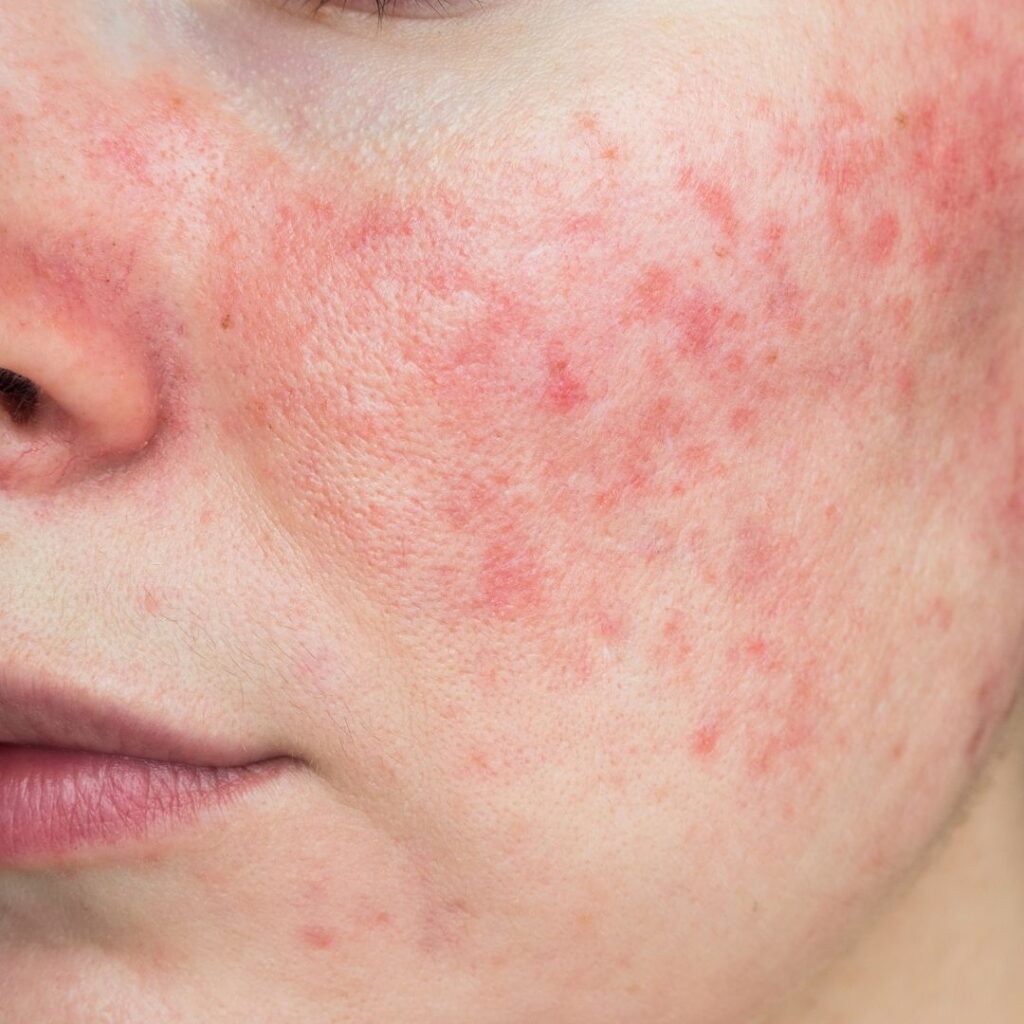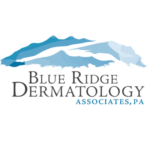Rosacea
Rosacea is a persistent skin condition characterized by facial redness and inflammation, but with the right guidance and treatment options offered at Blue Ridge Dermatology, it can be effectively managed for a clear and confident complexion.
We Treat Rosacea in Teens Adults Men Women
Rosacea in the US
In the US, the National Rosacea Society estimates that approximately 16 million people are affected by this condition. Rosacea normally affects adults between the ages of 30 and 60. It’s more common in women, but men can also develop rosacea, and they often experience more severe symptoms. In terms of racial distribution, rosacea is most common in individuals of Northern and Eastern European descent, particularly those with fair skin. However, it can affect people of any skin type or racial background.
Rosacea by the Numbers
Affects more than
Patients and caregivers lose approximately
Board-Certified Providers
All Our Providers are Board-Certified and State-Licensed Medical Professionals.
Unmatched Expertise
Our Providers Have Years of Experience Diagnosing and Treating Skin Conditions.
Comprehensive Care
We Provide Medical Dermatology, Cosmetic Dermatology, and Aesthetic Services.
Qualified
Staff
Our Staff Is Ready to Help You and Your Family With All of Your Dermatological Needs.
Expert Dermatology Care for the Entire Family
The Cause of Rosacea

While the exact cause of rosacea remains unknown, various factors are believed to contribute to its development. These can range from hereditary factors to environmental triggers, which can exacerbate the symptoms. Here are some common rosacea triggers:
- Sun Exposure: For many people, exposure to sunlight is the primary trigger for rosacea flare-ups.
- Hot Weather and Wind: Changes in the weather, especially hot temperatures and strong winds can cause rosacea to worsen.
- Stress and Emotion: High levels of stress or intense emotional reactions can provoke rosacea symptoms.
- Spicy Foods: Spicy foods are known to trigger rosacea in some individuals.
- Hot Drinks: Consuming hot beverages, such as coffee or tea, can cause flare-ups in some people.
- Alcohol: Alcoholic beverages, especially red wine, can often exacerbate rosacea symptoms.
- Exercise: Intense physical activity can sometimes trigger a rosacea flare.
- Skincare Products: Certain skincare products and cosmetics that irritate the skin can worsen rosacea symptoms. It’s usually advised to use gentle, non-abrasive, and non-alcohol-containing skin care products.
- Certain Medications: Drugs that dilate blood vessels, including some blood pressure medications, can trigger rosacea.
- Heat: Excess heat, such as from saunas or hot baths, can also prompt a flare-up.
It’s important to note that triggers vary from person to person. Keeping a symptom diary can help identify personal triggers, and avoiding known triggers can help manage the condition.
Symptoms of Rosacea
Rosacea is a chronic skin condition that, in general, affects the face. Its symptoms may vary from person to person and across different stages of the condition. Here are the common symptoms associated with rosacea:
- Facial Redness: Persistent redness in the central part of your face, often resembling a blush or sunburn.
- Swollen Red Bumps: Many people with rosacea develop pimples on their face that they might mistake for acne. These bumps may contain pus and can cause a sensation of heat or tenderness.
- Visible Blood Vessels: Small blood vessels on your nose and cheek area often swell and become visible.
- Eye Problems: Many individuals with rosacea also experience eye issues such as dryness, irritation, and swollen, reddened eyelids. Some people with rosacea may have rosacea ocular symptoms before skin symptoms appear.
- Enlarged Nose: Over time, rosacea can cause the skin on your nose to thicken and swell, a condition known as rhinophyma. This symptom is more common in men than women.
- Flushing: A tendency to blush or flush easily is often an early sign of rosacea.
The pattern of redness and inflammation in rosacea is usually symmetrical and primarily affects the central face, including the cheeks, nose, and forehead. If you are experiencing these symptoms, it’s important to consult with one of our dermatologists for accurate diagnosis and treatment.

Expert Dermatology Care for the Entire Family

Treatment Options for Rosacea
Rosacea treatment varies depending on its severity and the type of symptoms present. The primary goal is to control symptoms and improve the appearance of the skin. Here are some commonly used treatments:
- Topical Medications: These are applied directly to the skin and can reduce redness and inflammation. Commonly used topical drugs include metronidazole, azelaic acid, and ivermectin.
- Oral Antibiotics: Doctors may prescribe oral antibiotics to reduce inflammation and treat rosacea pustules. Doxycycline is one commonly prescribed antibiotic for rosacea.
- Oral Acne Drugs: For more severe cases of rosacea, doctors may prescribe oral acne drugs, such as isotretinoin.
- Laser and Light Therapy: These treatments can help reduce redness, visible blood vessels, and thickening skin associated with rosacea. They work by emitting wavelengths of light that target the tiny visible blood vessels just under the skin.
- Skincare Routine: Using gentle skincare products and protecting the skin from sun exposure can help manage rosacea. Avoiding known triggers can also be part of a self-care routine.
- Lifestyle and Dietary Changes: Since certain foods, activities, and conditions can trigger rosacea flare-ups, making changes in these areas can also be part of an effective treatment strategy.
Living with Rosacea
Living with rosacea can be challenging but manageable with the right guidance and care. Avoiding triggers, following a skincare routine suitable for sensitive skin, and seeking timely medical treatment are essential steps for managing rosacea.
While rosacea can’t be cured, its symptoms can be managed effectively. Our team at Blue Ridge Dermatology is dedicated to helping our patients understand their skin conditions and providing the most effective treatment options. With professional care and self-management, individuals with rosacea can lead a comfortable, confident life.
Subscribe To Our Newsletter
Stay in touch with us to get latest news and special offers.
Raleigh
3225 Blue Ridge Road, Suite 101, Raleigh, NC 27612
Cary
1110 SE Cary Pkwy, Suite 100, Cary, NC 27518

